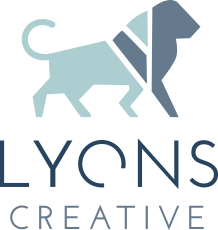No, ChatGPT Isn’t Coming For Our Copywriters
If you work in the creative industry–actually, if you’re a human on planet Earth–you probably haven’t gone more than a day lately without hearing somebody talk about ChatGPT. This chatbot was only released a few months ago, but it’s already making waves on many fronts.
The artificial intelligence-driven chatbot has many functions. You can ask it to debug code, play games, write music and explain complex topics. You can even ask it to write in a particular style–like it’s talking to a five year old, or like a cowboy in an old western. These are fun use cases, but what ChatGPT is best known for is its automated content generation, and I have to say–it’s impressive on a lot of fronts. It instantly weaves content from all over the internet into blog posts, essays, articles, and much more. It’s no wonder it’s making high school teachers and college professors sweat. Just this week, ChatGPT made the news for passing an MBA exam given by a Wharton professor.
So it’s not surprising that I’ve recently had clients ask me if I’m worried that chatbots are coming for my job. Will copywriting as a career become obsolete once chatbots can write everything? Will there be nothing left to write? In a word? No.
I can see the value of–and have used–chatbots for synthesizing research quickly, generating keywords, and gaining a general understanding of a topic, but when it comes to actual writing, ChatGPT poses no more risk to professional copywriters than the overseas content farms that have been cranking out ultra-cheap “filler” copy for years. Sure, it might check all the boxes in terms of getting more keywords on your website, but if you’re using copy to build brand equity, engage a specific set of customers, or build a reputation as a thought leader, you’re going to need a human.
In its current state, ChatGPT hasn’t mastered four key attributes that are must-haves for quality copywriting:
Strategy: My team and I pride ourselves on being strategic copywriters. Meaning, we don’t just receive a brief from a client and start writing, like a prompt you’d give ChatGPT. We take the time to dig into the research, customer data, and brand guidelines. This allows us to write with the subtlety and nuance required to meet specific goals, whether that’s customer acquisition, retention, loyalty, or something else.
Tone: Thankfully, not all brands sound the same–that would make our job pretty boring. The best brands have a well-defined voice and tone that’s instantly recognizable to the customer, and not always easy to master–I’m looking at you, robots. And it can get dialed up and dialed down based on placement. For example, a social media campaign may turn the dial up on a brand’s carefree, playful tone, while an investor-facing deck may infuse a little of that fun, while sticking mostly to the facts.
Originality: Yes, each piece of Content ChatGPT whips up is technically original–the words may be arranged in a different order than competitive content. But it stops short of being unique. Especially in competitive industries where standing out as an expert is paramount, you can’t have the same baseline content as everyone else.
Credibility: ChatGPT has the entirety of the Internet at its digital fingertips, which is a double-edged sword. Yes, it can deliver an incredible amount of information almost instantly, but there’s a baseline assumption that the content served up is factually accurate. Remember when you weren’t allowed to use Wikipedia as a primary source in college papers? I see the same issue here. The output of ChatGPT shouldn’t simply be accepted as accurate until it’s been fact-checked…by a human.
I could be wrong–only time will tell. But in the meantime, I’m going to get back to work, using my human brain to craft strategic, on brand, original, and trustworthy content…perhaps with a few AI-generated keywords worked in.
PS - If you’re interested in learning more about this topic, I highly recommend this episode of Crooked Media’s podcast, Offline with Jon Favreau.
